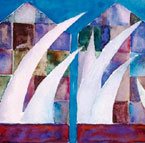September 15th, 2012,
From 15.30 to 01.00
Park around the Ujazdowski Castle
Open-air music and film evening
 Summer Opera is an interdisciplinary outdoor event, entirely devoted to ‘the joy of music’ in a broad perspective: to create music, to listen to it, to understand it, to appreciate it and to dance on it.
Summer Opera is an interdisciplinary outdoor event, entirely devoted to ‘the joy of music’ in a broad perspective: to create music, to listen to it, to understand it, to appreciate it and to dance on it.
Summer Opera is the follow-up of last year’s “Awakening of the summer” which was organized by the network of national institutes for culture and embassies in Warsaw: “EUNIC Warszawa” and CCA Zamek Ujazdowski and which brought 3000 persons to the castle on a warm midsummer night.
This year, once again, the gracious environment of the Castle will transform into a lively European boulevard and the keyword is ‘Opera’. Opera’ in the sense of a spectacular synthesis of arts; combining various elements, often surprising and sometimes disturbing, but always fascinating. The main role in the Summer Opera will be played by cinematography. 3 screens will show documentaries devoted to musicians, music and instruments. There will be animation- and feature films as well as music videos from several European countries and even a silent film. Feel like doing it? There will be a voice-workshop, lessons in Irish dancing, you can make music on what needs to be recycled and – of course – the opera brings also a music workshop for children and parents. Workshops are dedicated to everyone: those talented and those who cannot sing or play.
An Opera is not an Opera without a choir and an orchestra! Therefore on stage: Małe Instrumenty (Poland), Alfredo Costa Monteiro (Portugal) and Anthony Chorale (The Netherlands) and in the late hours: DJ Disco DJ Partizanti (Poland) and DJ PM Misha (Portugal).
For the hungry and thirsty the opera will serve Hungarian, Portuguese and Czech delights and more, more, more!
The opera brings thunder and lightning, but in case the weather is not in harmony with the opera, we will go inside.
Workshops are open for everyone. No registration needed.
Detailed information on the websites of the organizers and on facebook.
Organizers:
EUNIC Warszawa (European Union National Institutes for Culture): Embassy of Greece – Press Office, Delegation Wallonie-Brussels (Embassy of Belgium), Embassy of Ireland, Embassy of the Kingdom of the Netherlands, Austrian Cultural Forum, Czech Center, Danish Cultural Institute, Instituto Camões, Istituto Italiano di Cultura, Goethe Institute, Bulgarian Cultural Institute, Swiss Arts Council Pro Helvetia, Romanian Cultural Institute, the Hungarian Cultural Institute in Warsaw
and:
Center for Contemporary Art Ujazdowski Castle / KINO.LAB
Admission Free
The Press Office of the Greek Embassy invites you to the screening of the film “Diolkos”, at 18.30 in KINO.LAB.
A movie for the Diolkos of Corinth
 1.500 years since the construction and use of the Corinthian Diolkos, the Technical Chamber of Greece in collaboration with the Society for the Study of Ancient Greek Technology, created a movie presenting one of the greatest innovations of technical civilization of Ancient Greece.
1.500 years since the construction and use of the Corinthian Diolkos, the Technical Chamber of Greece in collaboration with the Society for the Study of Ancient Greek Technology, created a movie presenting one of the greatest innovations of technical civilization of Ancient Greece.
The 22 min. film, created with the use of 3D animations, represents one of the most important technological monuments of Greek civilization, Diolkos: an overland route for the transfer of ships between the Saronic and Corinthian gulfs along the Isthmus (Corinth), when there was no strait. The film offers many other technical details, but also extensive scenes of marine life in antiquity: gaming, visit at the Temple of Poseidon, fun time in a pub, the construction of Hydraulis (hydraulic, water music instrument) and an emotional confrontation.
Filed under: Archaeology, Art, Bilateral relations GREECE - POLAND, Cinema, Construction, culture, Customs, Education, Enviromental Protection, EUNIC, Food, Greece, history, Infrastucture, International Relations, Music, Nature, Poland, Science, theater | Tagged: 15 September 2012, 3D animations, ANCIENT, Ancient Greece, and, Animation, animation films, Antiquity, Archaeology, Arts, Awakening of the Summer, boulevard, Castle, Center for Contemporary Art Ujazdowski Castle, Chamber, children, choir, cinematography, civilization, collaboration, concerts, confrontation, Construction, Corinth, Corinthian Diolkos, countries, CSW, culture, Current Affairs, Czech, Dance, delights, Diolkos, DJs, documentaries, Embassies, Embassy of Greece-Press Office, emotional, Environment, EUNIC, EUNIC Warszawa, Europe, European, event, feature films, Film, film evening, films, follow-up, Food, for, fun time, gaming, Greece, Greek, gulfs, history, Hungarian, Hydraulic, Hydraulis, in, innovations, instruments, Interdisciplinary, Irish dancing, Isthmus, Kino Lab, Lessons, Life, lively, marine, midsummer, monuments, movie, Music, music videos, music workshops, musical workshops, musicians, national institutes for culture, Network, night, of, on stage, open-air, Opera Lata, Opera of the Summer, Orchestra, organisers, outdoor, overland, parents, park, Participation, Portuguese, POSEIDON, Press Office, Press Office of the Embassy of Greece, pub, Route, Saronic, Scenes, Science, screening, screens, ships, silent film, Society, spectacular, strait, study, synthesis, Technical, Technological, Technology, Temple, The, transfer, Ujazdowski, visit, voice-workshop, Warsaw, water music instrument, workshops | Comments Off on “Opera of the Summer” / “Opera Lata” (15th September 2012) – Participation of the Press Office with the film “Diolkos”













































































 The
The 






















